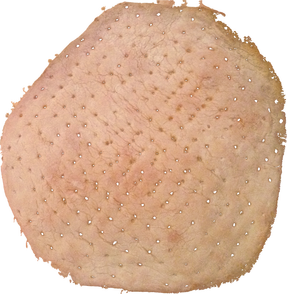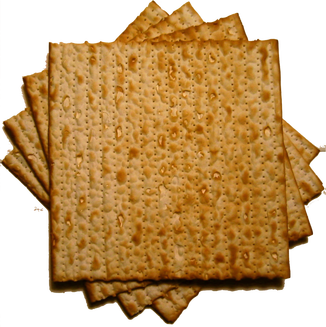I had this moment of realization while making the matzah that seems to strike me every year, as if for the first time. While squishing the dough between my fingers, I remembered why all matzah must be baked before the holiday begins. Once Passover starts, no more matzah can be made.
The reason is surprising, simple and paradoxical: It is impossible to make matzah without also making chameitz.
So, I need to give a bit of background here. Matzah is the flat, unleavened bread that is eaten during Passover as a sacred obligation. It is made by combining flour and water, mixing them quickly, and placing the flattened dough into a very hot oven within eighteen minutes, before it has time to rise.
We usually think of chameitz as the opposite of matzah. It is any food made from grain that is not matzah. Bread, cookies, cake, beer, pasta, cereal and grain-based liquors are all examples of chameitz. All are forbidden during Passover. Chameitz, during Passover, represents our “puffy” egos and inflated sense of self. Not only is it not permitted to eat these foods, according to traditional Jewish law, one is not even permitted to own chameitz during Passover.
And this is the reason why you cannot make matzah during Passover. In the simple act of combining flour and water, chameitz is a necessary by-product. Any water-flour combination that does not enter the oven within eighteen minutes becomes chameitz.
As I was making the matzah with my daughter, we were constantly cleaning off the white, sticky dough that covered the rolling pins, the counter, our hands and our aprons like glue. All of it becomes chameitz; all of it would be forbidden to be in our house after Passover begins on Friday evening.
This is the paradox of matzah and chameitz. They are not really opposites. Rather, the distinction is only in the arbitrary conceit that flour and water turn into chameitz in eighteen minutes. Matzah and chameitz are separated only by the fire of the oven and the fire of our imaginations.
There is a teaching about this narrow distinction between matzah and chameitz based on the similar spellings of the two words in Hebrew. Matzah is spelled mem, tzadi, hey. chameitz is tzadi, mem, chet. The two words are as close to each other as the two letters hey (ה) and chet (ח)—distinguished only by a small gap in the hey. The only difference between matzah and chameitz is in that gap, a narrow space in which we allow God to enter.
The fact that we cannot make matzah without making chameitz reminds us during Passover that we cannot create any holiness in our lives without also introducing the possibility of its shadow. We cannot make ourselves more holy without also introducing arrogance and self-aggrandizement into our egos. We cannot purify ourselves spiritually without also risking the possibility that we will thereby separate ourselves from others. Like matzah and chameitz, sacred holiness and gross arrogance are not really opposites. They are separated only by the small gap of how we invite God into our consciousness.
The matzah we made with our own hands is, like us, both spiritual and earthy. It is bound up in the sweat and labor of ploughing fields, growing grain, grinding, kneading and baking. At the same time, it is elevated to the sacred by careful attention to our intentions. By noticing the subtle differences between pious humility and arrogant self-righteousness, between hey and chet, between matzah and chameitz, we discover how we can be both material and divine.
Other Posts on This Topic:
Shabbat HaChodesh: The Death of Little Things
Bedikat Chameitz





 RSS Feed
RSS Feed
